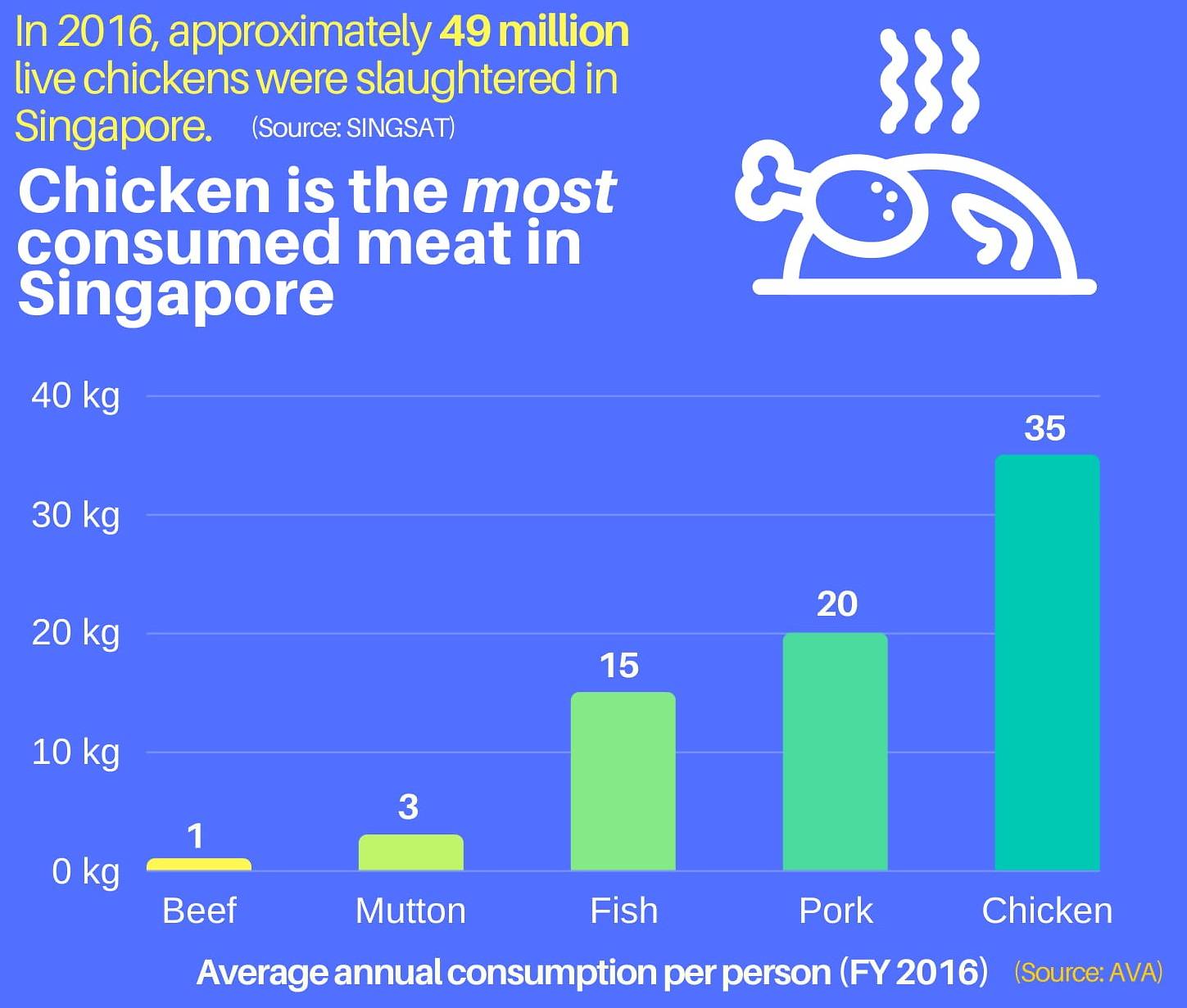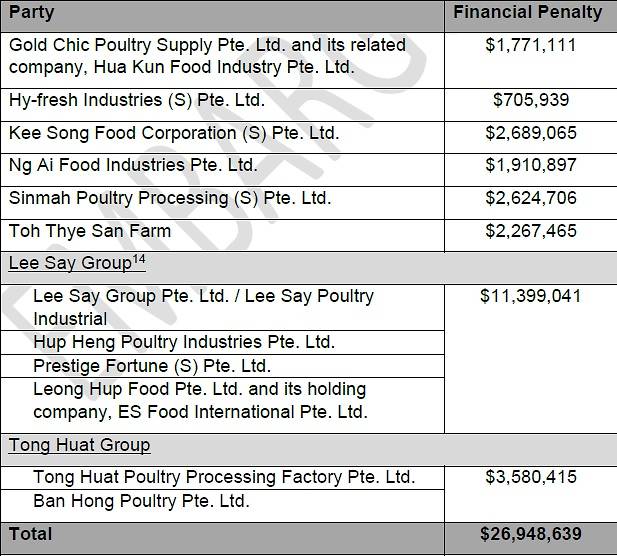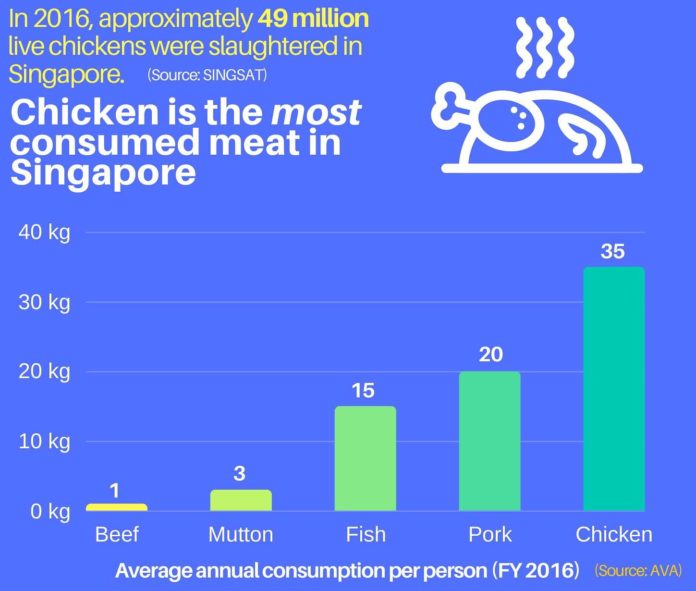SINGAPORE: On Wednesday (Sep 12), the Competition and Consumer Commission of Singapore (CCCS) fined 13 fresh chicken distributors a total of S$26.9 million – the highest penalty yet.
The 13 distributors had been involved in unethical price fixing and market sharing practices for seven years.
READ: 13 fresh chicken distributors fined record S$26.9m for price fixing, market sharing
Here are the 5 things to know about the case:
1. WHERE THE CHICKENS COME FROM
The 13 companies in question import live chickens from farms in Malaysia, subsequently slaughtering them in Singapore. Then, the distributors sell the fresh chicken to supermarkets, restaurants, hotels, wet market stalls and hawker stalls.
In 2016 alone, approximately 49 million chickens were slaughtered in Singapore.
2. CHICKEN IS THE MOST CONSUMED MEAT IN SINGAPORE
The average Singaporean consumes as much as 35kg of chicken a year. According to data from the Agri-Food and Veterinary Authority of Singapore, that’s as much as the average intake of fish and pork combined. Mutton ranks a distant fourth at 3kg consumed annually, with beef rounding out the top five at just 1kg.

The average Singaporean consumes 35kg of chicken a year. (Photo: CCCS)
3. IT IS A HALF-BILLION DOLLAR INDUSTRY
The 13 fresh chicken distributors that were punished were dubbed a cartel; the collective is responsible for supplying over 90 per cent of Singapore’s fresh chickens. The combined annual turnover of the 13 companies amounted to S$500 million.
4. HOW THE COMPANIES COLLABORATED
For at least seven years, the companies had:
- Engaged in price discussions
- Coordinated the amount and timing of price increases
- Agreed not to compete for each other’s customers
So with each member having its own slice of the (chicken pot) pie, the anti-competitive measures culminated in …
5. COORDINATED PRICE HIKES
The coordinated price increases ranged from 10 cents to 30 cents per kg on at least seven occasions – July 2008, May 2009, August 2010, January 2011, March 2011, January 2013 and January 2014.
This left customers with limited options, if they had wanted to switch to more competitive distributors, ruled CCCS, which dished out fines to the 13 companies according to the following table:






